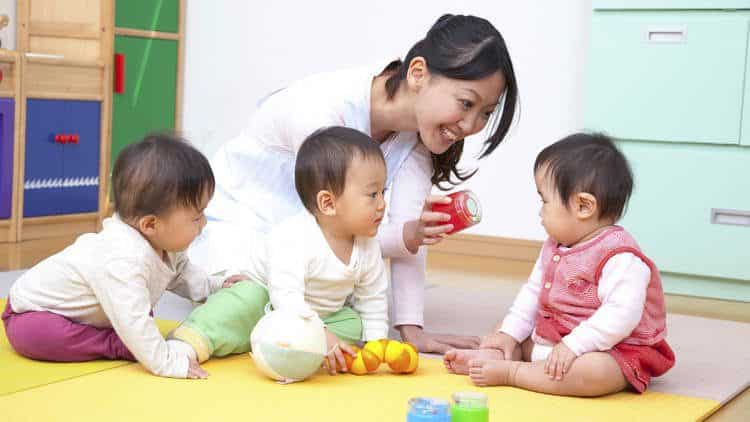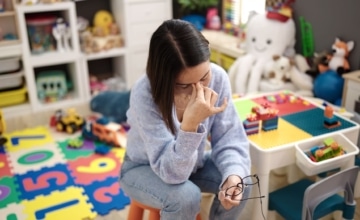Explore how strong teacher-child relationships support overall development and motivate children’s learning.
| Key Messages: |
|---|
| Brain research indicates that children clearly benefit from opportunities to develop close relationships with their caregivers. |
| Strong teacher-child relationships support overall development and motivate children’s learning. |
| Children are more likely to attain early language and literacy with teachers who are able to build close, responsive relationships. |
P
reparing Yourself
- Think back over your career, how did you form relationships with children and families?
- What messages about the importance of building trusting relationships with young children could you share as a mentor?
L
inking with the Caregiver
- Invite teachers to share the following with you:
- What they would like children to remember about their relationship with them?
- Listen for ways for teachers do the following:
-
- Develop relationships with each child and family.
- Demonstrate their ability to make children feel safe and secure.
-
A
cknowledge Strengths & Areas for Support
- Reflect back what you heard (content and feeling) and reach for clarity. Ask teachers what they would like to learn more about in building relationships with children and families.
- Highlight strengths. Observe aloud how you have seen teachers build trusting relationships with children and families.
- Reframe the teachers’ comments and concerns in ways that extend their understanding of the importance of early relationships.
N
ext Steps
- Brainstorm together ways teachers can build, enhance, maintain, and renew relationships with children and families.
- Identify resources that each of the following contributors might bring to the effort:
- Teachers
- You, as the mentor
- Colleagues or community



